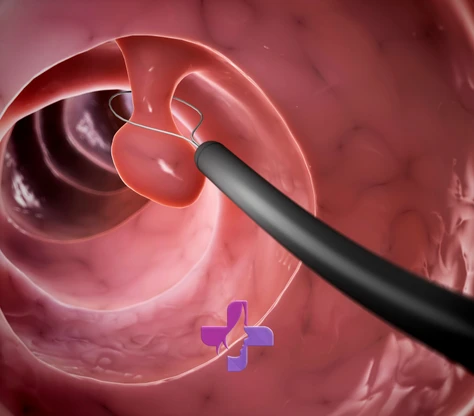Nasal polyps are benign (non-harmful) growths of soft tissues inside the nose, usually in the nasal sinuses or nasal passages. These polyps are usually shaped like a bunch of grapes and can be transparent or yellowish in color.
The nasal octopus is defined as structures resembling tentacle-like tissues located in the nose, especially on the inside of the nose. These structures help moisturize and clean the air inside the nose.
Let's Examine the Details

Symptoms
Nasal congestion
Frequent headaches
Loss of smell
Facial pain or pressure
Frequent sneezing and runny nose
The exact cause of the formation of nasal polyps is unknown, but chronic sinusitis, asthma, allergic reactions and genetic factors may play a role in their development. Polyps occur when the mucus membrane in the nose becomes inflamed and swollen.
Treatment aims to relieve the symptoms caused by polyps. Medications, such as medications, corticosteroid nasal sprays and antihistamines, can help shrink polyps and reduce symptoms. In severe cases or in cases that do not respond to symptoms, surgical intervention may be considered.
Symptoms:
Nasal octopuses are generally considered an evolutionary adaptation to regulate and moisturize the airflow inside the nose. These structures help filter dust and impurities by directing the airflow inside the nose.
Nasal octopuses usually do not require special treatment as they are a physiological structure. However, if there are abnormal growths or blockages inside the nose, it is important to consult a health professional to assess the condition and determine the appropriate treatment.
Each of the contents on this site has been prepared for informational purposes. Do not apply any of the treatment methods described on the site without the supervision of a doctor. Otherwise, the site management and Assoc. Prof. will not be responsible in any way for any problems that may arise. Dr. Osman Halit Çam is not responsible.
© 2023 – All Rights Reserved. Assoc. Dr. Osman Halit Cam
Last Updated: 25.07.2025